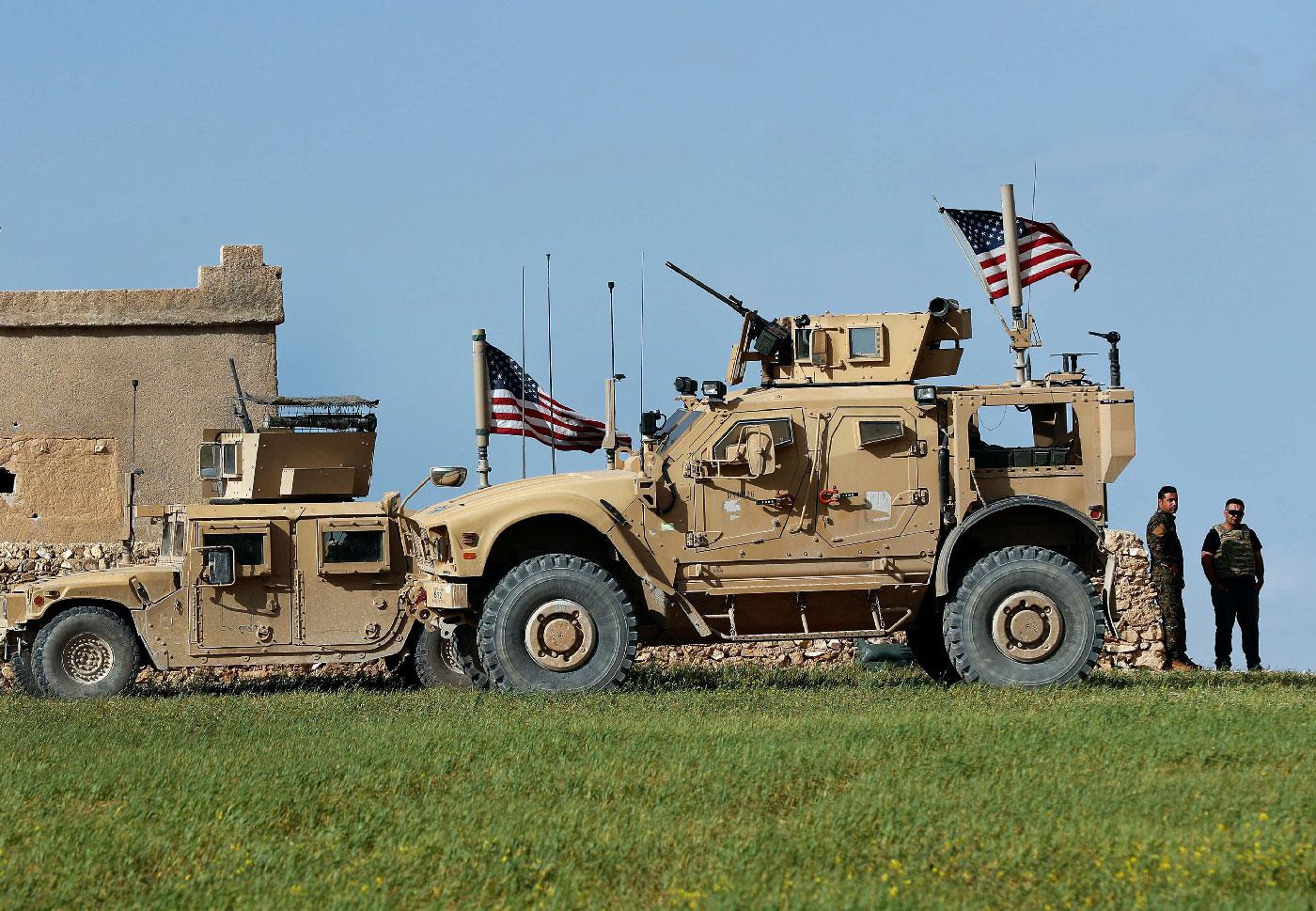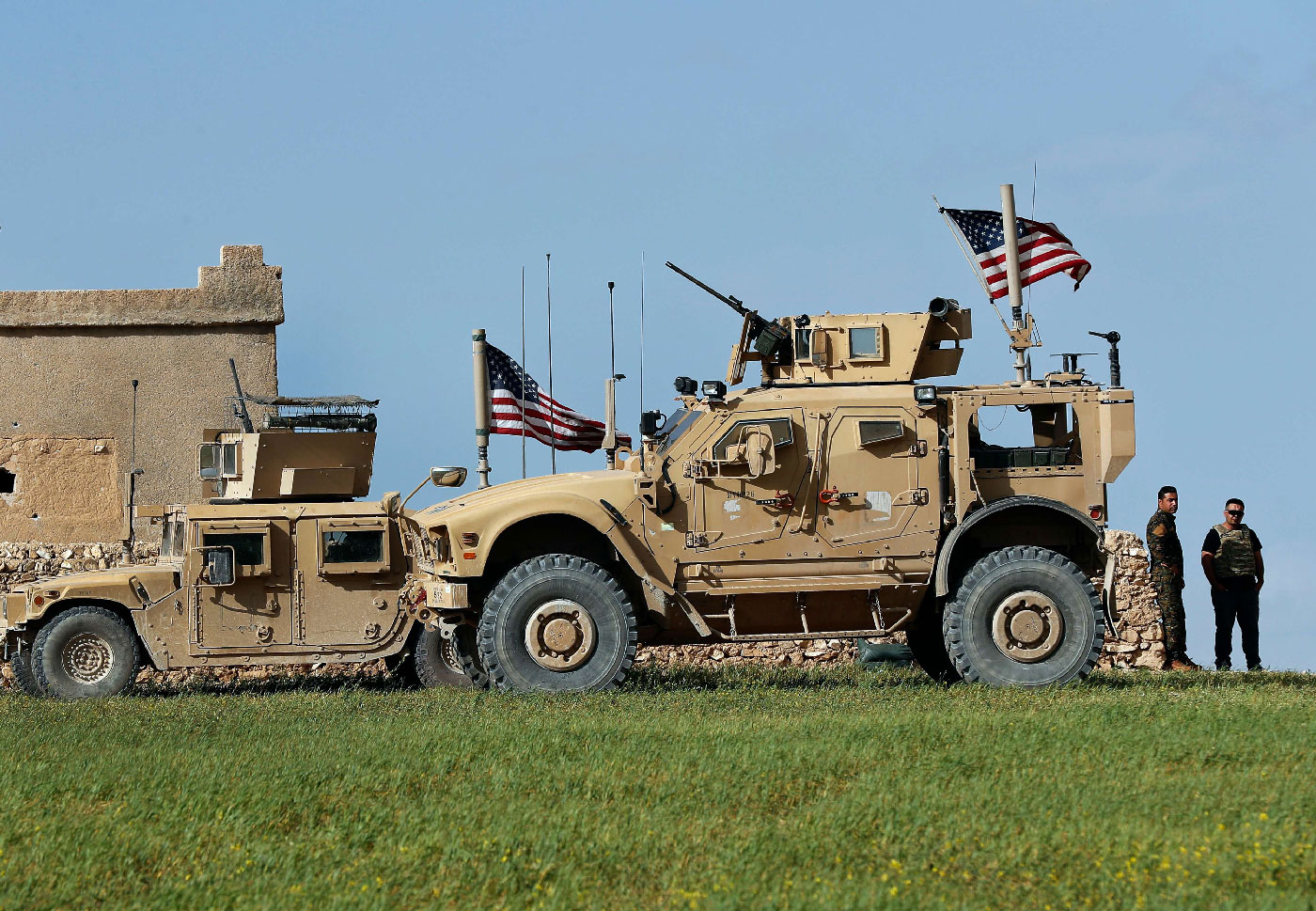Syrian Kurdish leaders see renewed US interest
BEIRUT - President Donald Trump's announcement in April that he wanted to pull US troops out of Syria left the country's Kurds fearing they would be abandoned by their most important military ally.
Six months later, as the battle against Islamic State draws to a close, Syrian Kurdish leaders see signs of renewed US interest in the oil-rich region they control in northern and eastern Syria.
A spate of visits to Syria by US diplomats in the past two months and a new readiness to discuss the country's future point to a longer-term US commitment, they say.
US forces are seen as a shield against attacks by Turkey from the north and protection against any attempt by President Bashar al-Assad to seize the region's wheat and oil fields.
"We feel (the Americans) are more committed now," Aldar Xelil, a top Kurdish politician, said.
"There's attention, a political file and follow-up beyond the realm of fighting (Islamic State)," he said. "At the very least, before there was no talk of this at all."
After Trump's announcement, Kurdish-led authorities began talks with Damascus. They did so partly out of concern their ally could walk away, though other US officials played down the odds of withdrawing soon.
The talks have come to a standstill, one Kurdish official said.
The Syrian Democratic Forces (SDF), spearheaded by the Kurdish YPG militia, control nearly a quarter of Syria. This territory, where they have carved out autonomous rule, is the largest chunk of Syria outside the state's hands.
Assad sees the Americans as "foreign occupiers" and has threatened force to restore the region, where some 2,000 US troops stand alongside the SDF and supply weapons.
Even as Washington helped Kurdish fighters seize territory from Islamic State, it has opposed their autonomy plans and avoided making any political promises.
Conflicting US messages have put the Kurds on guard at times, and they worry Washington may ultimately put its ties with fellow NATO member Turkey first.
"We do get along great with the Kurds. Don't forget, that's their territory," Trump told a news conference at the United Nations general assembly last week. "We have to help them. I want to help them...They fought with us. They died with us."
The US-Kurdish military friendship has infuriated Turkey, which views the YPG as an extension of the Kurdistan Workers Party (PKK), classified as terrorist by Ankara and the United States.
US has 'entered political arena'
In line with Ankara's wishes, the main Kurdish parties and their allies have been repeatedly left out of international talks on Syria's conflict since it began in 2011.
Ilham Ahmed, a senior member of the SDF's political wing, the Syrian Democratic Council, said US officials had now "entered the political arena".
She welcomed comments about engaging the Kurds in any future peace settlement and about US forces not leaving before there is progress in defunct United Nations talks on Syria.
"But the results remain the most important to us ... So far we have not seen a clear plan," she said. "Visits alone are not enough. But rather guarantees of protecting the region and including (us) in the political process."
Xelil said the latest shift may stem from ramped-up US efforts to counter Assad's ally Iran. He pointed to remarks by National Security Adviser John Bolton, who said troops would stay in Syria as long as Tehran did.
He said the SDF's attempts to negotiate with Assad, who has clawed back most of the country, could be another factor.
Amjad Othman, an SDC spokesman and founding member, said talks with the Damascus government have reached an impasse since the first meeting in July. The two sides have mostly avoided fighting during the war.
The state "insists on sticking to the current order" and refuses to make changes to the constitution, he said. "There's no use as long as it's not willing to make any concessions."
Damascus accuses US
Syrian Kurds, whom the state persecuted for years, say they do not seek independence, but hope a political deal will secure their autonomy and minority rights.
Syrian Foreign Minister Walid al-Moualem accused Washington of ruining the negotiations.
"The Kurdish citizens...are discussing a set of rights, some of them could be achieved through dialogue," he told Russia's RT channel on Sunday. "But the danger is the American presence...is giving the Kurds hope that they can work outside the legitimate government in Damascus, and this is an illusion."
The United States said in August it had raised $300 million for parts of Syria taken from Islamic State, after Trump demanded that allies help carry the costs of the war.
Jim Jeffrey, a top US diplomat for Syria, told Reuters on Friday that $100 million had come through from Saudi Arabia, so Washington beefed up its teams and "stabilization" work. He said this included "local governance".
Secretary of State Mike Pompeo has tasked Jeffrey with overseeing the US political role.
Defense Secretary Jim Mattis also underlined the US interest in Syria this week.
"Our diplomats, they are on the ground (and) have been doubled in number," Mattis told a news conference during a visit to Paris. After the fighting ends, he said, troops would work to ensure the jihadists do not return.
"As we see the military operations become less, you'll see the diplomatic effort now able to take (root)."



